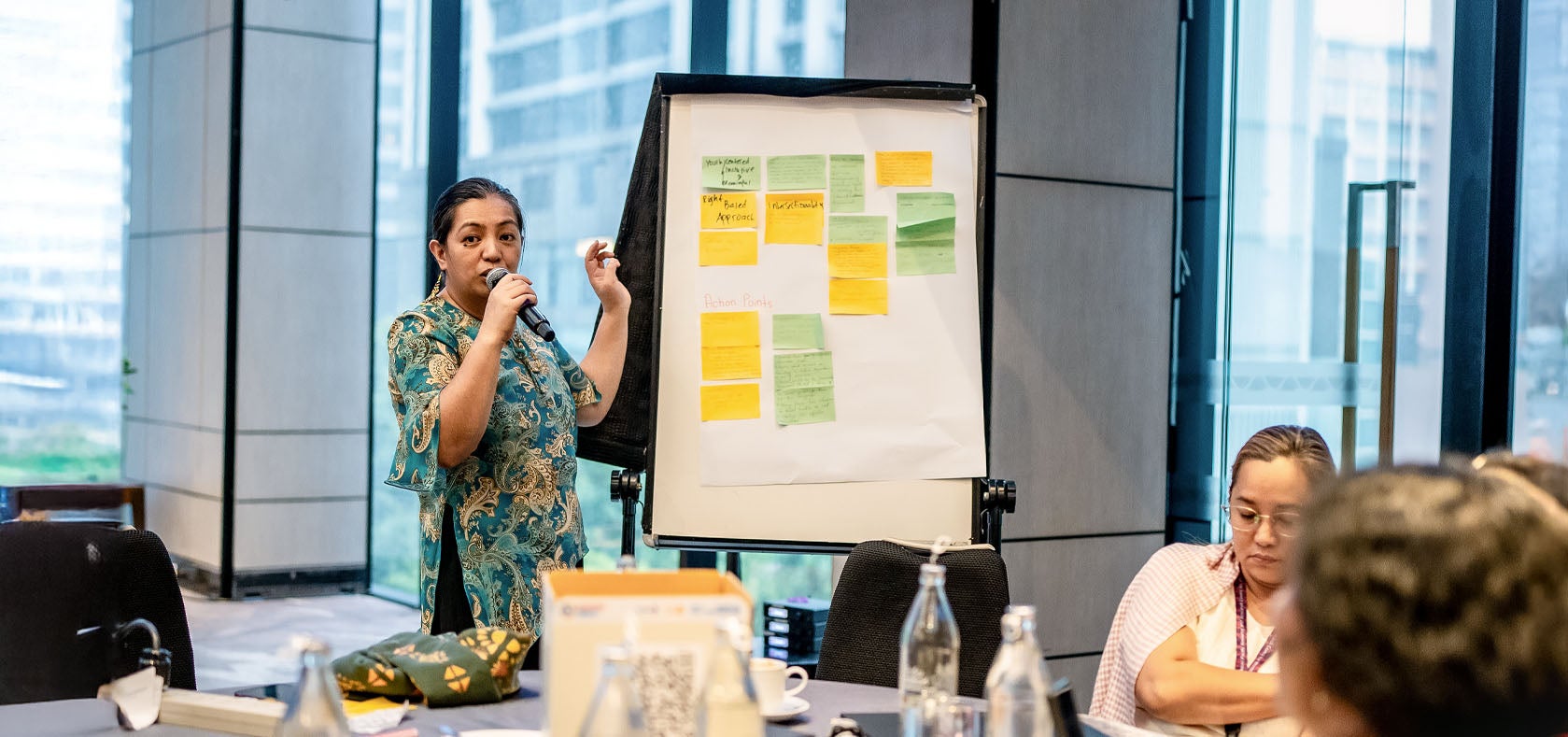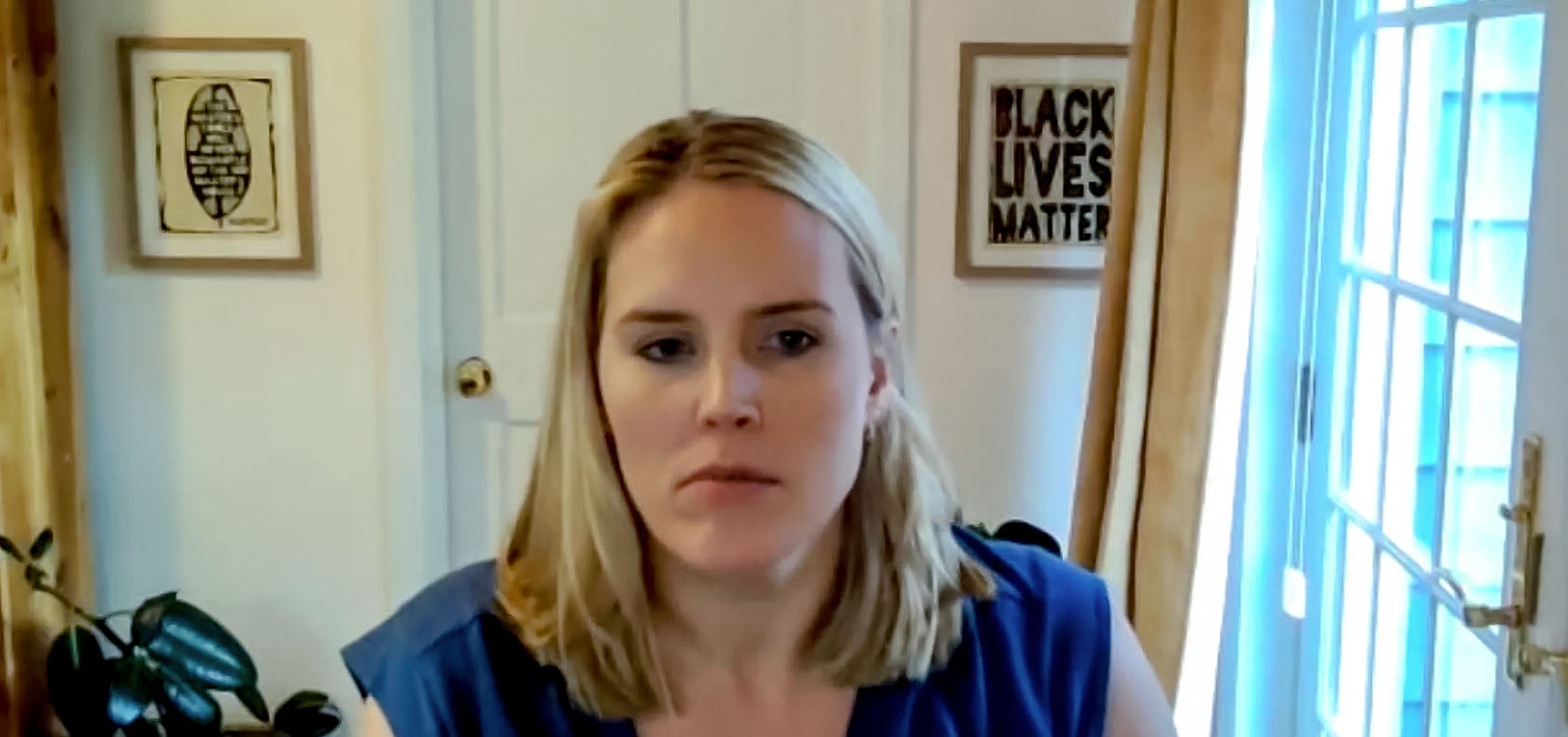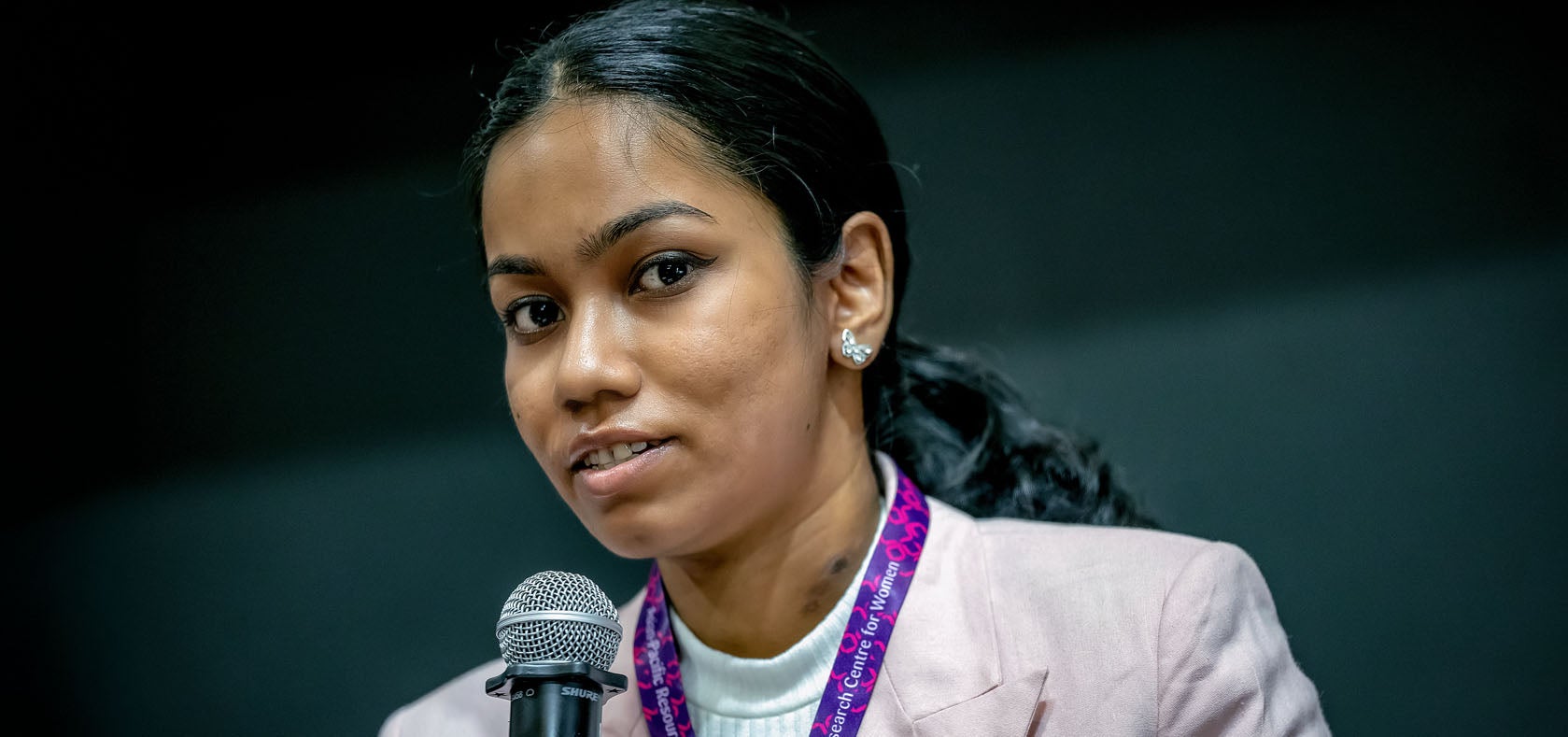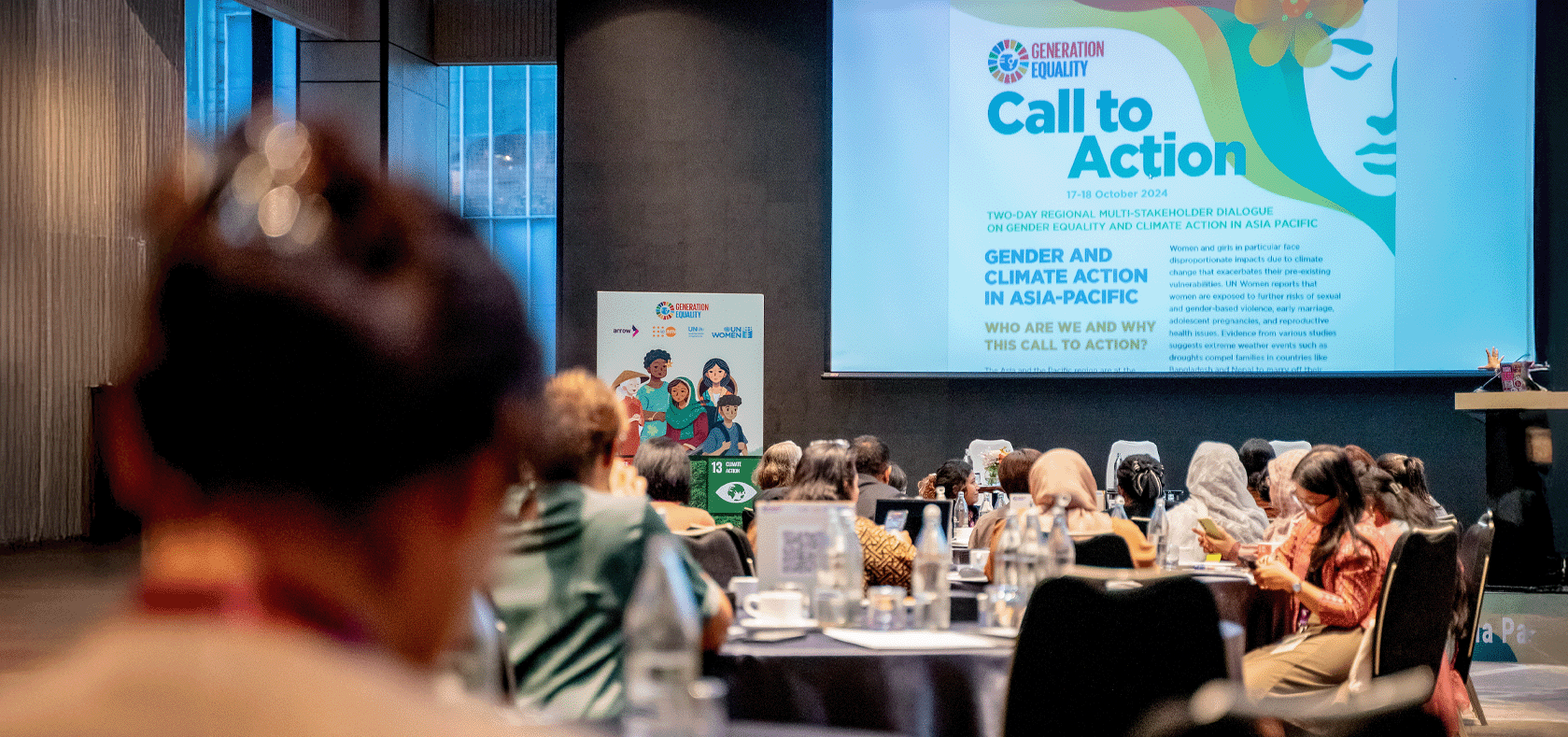
“Gender is not just a women’s issue; it is a cross-cutting issue that affects everyone. Therefore, gender must be integrated into the policies and programmes of all government agencies to ensure inclusive solutions.”
— Cyrene Vai from Solomon Islands, Provincial Development Officer, Ministry of Women, Youth, Children and Family Affairs

“We need to recognize the leadership of Indigenous women and youth in advancing a just energy transition and give them the capacity to lead, operate, and manage renewable energy technologies.”
— Robeliza Halip from the Philippines, Coordinator at the Indigenous Peoples Major Group for Sustainable Development and Right Energy Partnership with Indigenous Peoples

“Increased access to gender and environment data will help build an understanding among our policymakers, our funders, and our movements, of how gender issues intersect with the causes and impacts of climate change, and will help lead to evidence-based and better-informed policymaking.”
— Kathryn Tobin, Co-Coordinator of the Gender and Environment Data Alliance and Senior Programme Manager at the Women’s Environment and Development Organization (WEDO)

"While there is a huge amount of interest among investors on the intersection of gender and climate change, there remains a lack of robust gender-disaggregated data, affecting their capacity to make informed investment decisions. Additionally, there is still a lack of know-how on integrating gender-responsive mechanisms into the investment process. Although there has been progress from awareness to action, more work needs to be done.”
— Seema Panthaki, Director of Gender Equality Platform, AVPN

“We should integrate the interlinkage of climate change, sexual and reproductive health and rights, and gender-based violence into the school curriculum, because we cannot afford another generation to grow up and be aware of these issues only in their 20s.”
— Geilee Skandakuma from Sri Lanka, Co-Founder of the Gender Justice Collective and Member of UN Women’s 30 for 2030 Network
